Q&A: OLIVIA SMART’S BREAKTHROUGH DIRECTORIAL DEBUT – BLACK STROKE
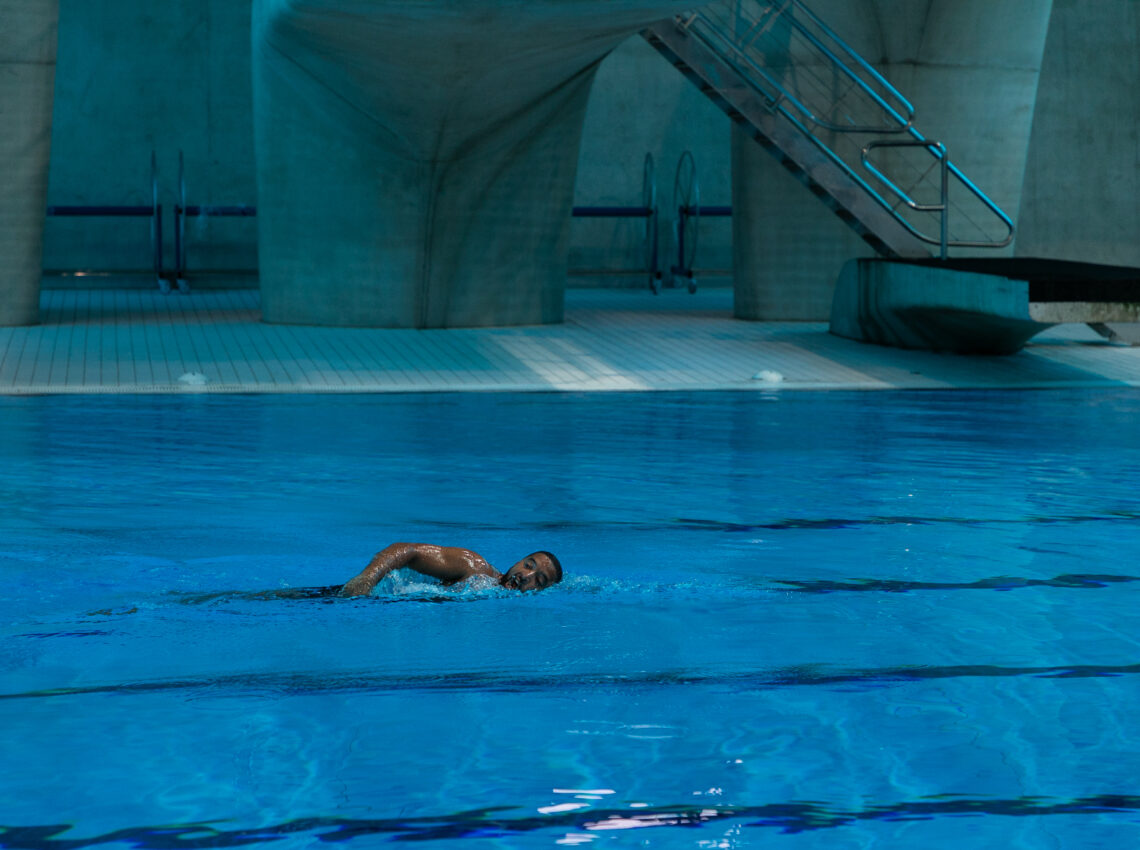
According to the latest figures from Sport England, 87% of Black adults in England do not swim. We follow the stories of three people from different walks of life breaking racial stereotypes to learn to swim for the first time. Each individual with their own personal goal, proving it’s never too late to learn. With the support of their coaches and community, we will follow their journey to become competent swimmers, touching upon the racial history that has created barriers to entry for black people and what has hindered them learning before now. Will they sink or swim, the choice is theirs.
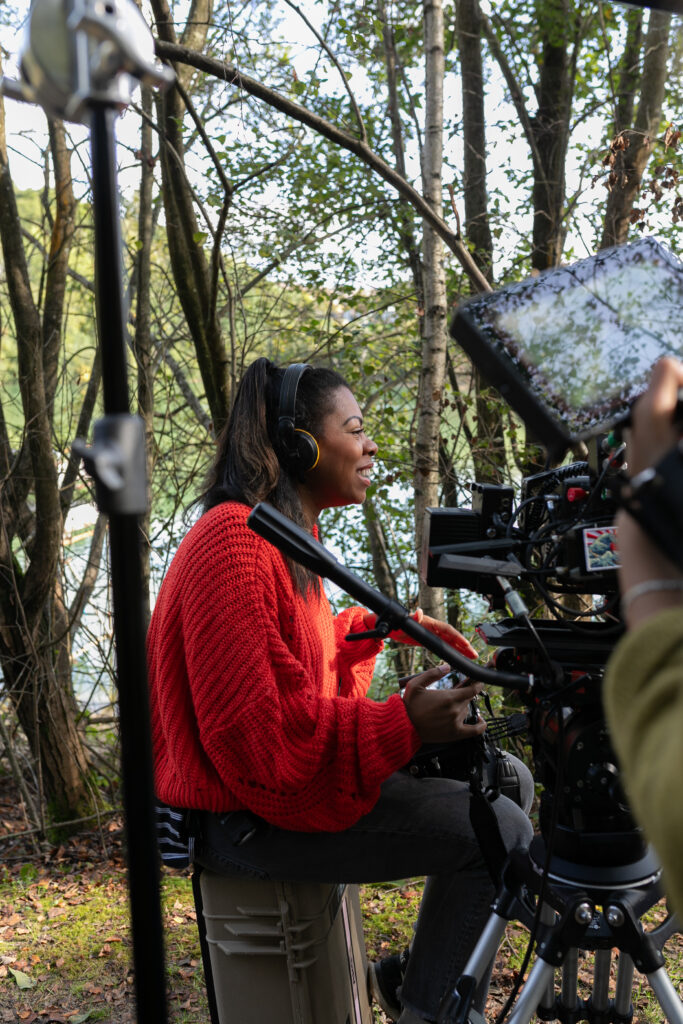
In the film, Olivia explores the thoughts, feelings, and experiences of Black People concerning swimming. For myself personally, I loved swimming and was taken to the local Wavelengths in Deptford by my Dad at least once a month. However, in households where the water is historically and culturally related to feelings of fear and mystery, not everyone gets that chance. Additionally, for those with physical characteristics such as locs or big hairstyles, modern-day swimming accessories like swim caps have never seemed to cater to us, hence the creation of brands such as Soul Caps.
We spoke to Olivia to find out more about her experience directing her first film and what inspired it
How did you find your experience directing this film?
In full transparency I was a little nervous to direct this, it was a huge undertaking to be given the privilege to tell these stories and I knew that I owed it to my community to tell them authentically and I wanted to get that right. I put together an almost entirely black team with some of the most talented people in the industry I could find and we got to work. I was clear in my vision from the very beginning that the film would feel like a warm hug and I think we did just that.
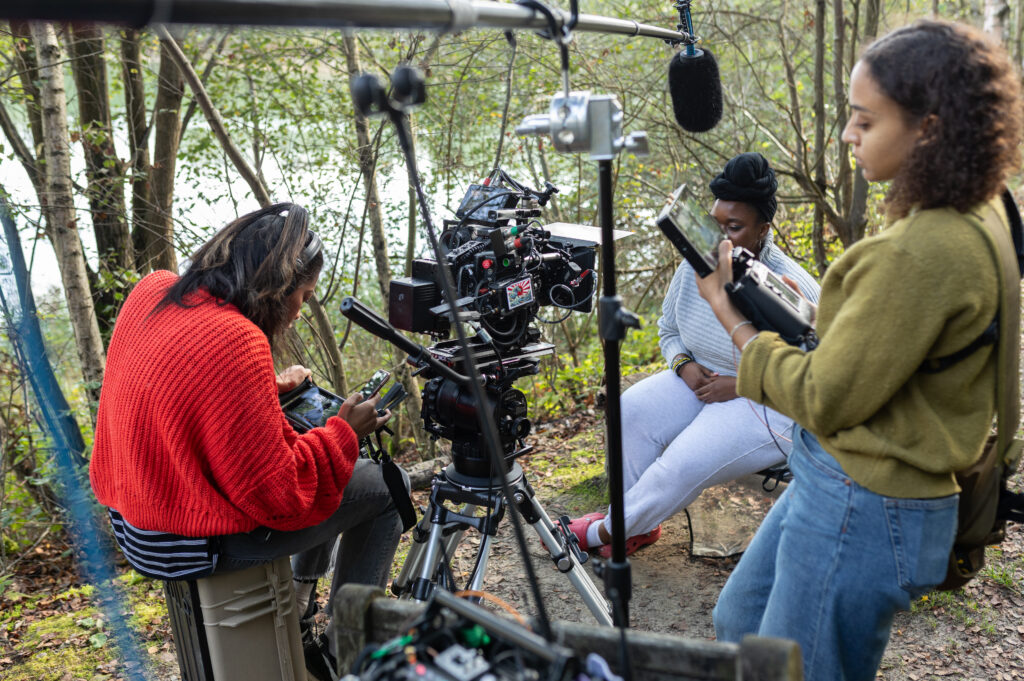
What drew you to this story?
When entering the Netflix Docs Fund I knew this would be my directorial debut and wanted to tell a story that I was happy to attach my name to for the rest of my life. I observed that many of the stories told that centred around the black community weren’t celebratory or uplifting and I wanted to change that. I googled challenges within our community and came across the statistic that 87% of black adults in England don’t swim. My mind tracked back to party holiday’s like DLT where there would be a pool party and black people would be everywhere BUT the pool and I realised we had a problem. I didn’t want to make assumptions so I did a shout out on my instagram to ask about black swimming experiences and within an hour my DMs were flooded with horror stories and people just eager to learn. With little knowledge about swimming space I reached out to Coach Harley on Instagram and was fascinated by how he’d carved a lane for himself as a mixed race man in such a predominantly white industry and he agreed to come on board. I knew one of the biggest barriers to entry would be getting our hair wet so I messaged the owners of Soul Cap on Linkedin and they agreed to help. With Harley and Soul Cap onboard I knew I had the right resources around me to do this story justice.
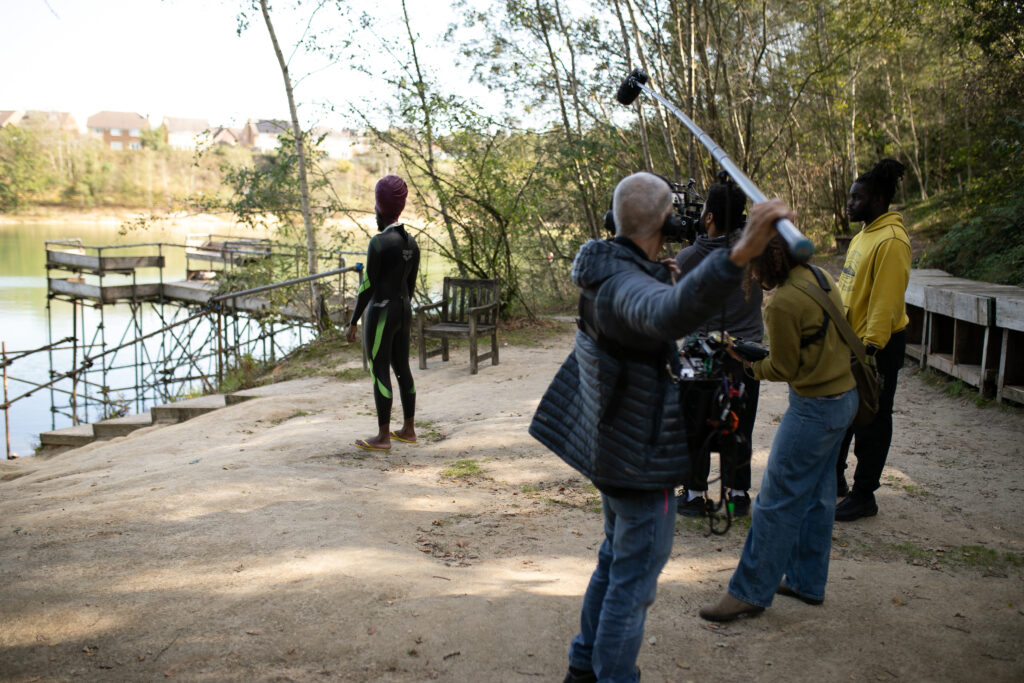
What were some of the challenges you faced, how did you overcome them?
Nobody told me when I started that the two hardest things to film are in water and with children. I think one of the biggest challenges was health and safety in and around water, most of our crew couldn’t actually swim so balancing getting the shots and making sure nobody drown was challenging but also amusing. Another challenge was finding a soundie that was experienced enough to get clear audio in a pool, sound refracts off the waves in the water and many pools have large air conditioning units making it tricky to get clear audio.
What advice would you give to other aspiring directors who hope to one day be in your position?
Be patient but also be ferocious and leave your ego at the door. The project may have your name on it as the director but without your team, there is no project, give your team an opportunity to shine as they don’t need to be there. I made this project as a love letter to the black community but I also wanted all of the team to be able to be proud to put it on their portfolio and get other jobs off the back of this project, which fortunately some of them have.
Crew List
Producer and Director – Olivia Smart
Executive Producer – Andy Mundy-Castle
Director of Photography – Joel Honeywell
Editor – Desiree Ivegbuna
Shooting Producer – Richard Mejeh
Assistant Producer – Vusi Kaola
1st AD – Lily Taylor
2nd AD – Fola Abatan
Sound Recordist – Mick Duffield
Sound Editors – Chad Orororo + Tom Foster
Dubbing Mixer – Sam Castletown
Post Producer – Stephen Morrison
Supervising Producer – Elisabeth Hopper
Online Editor – Eduard Fadgyas
Colorist – Duncan Russell
Line Producer – Elanor Lee
Production Manager – Rachael McLean- Anderson
Production Assistant – Andre O’Garro
Graphics – Subtractor
Post House – Halo
Photography – Etim Essien
BTS Videography – Keith Afadi
TALENT
Satema Tarawally
Maria Gbeleyi
Aaron Pharaoh
Harley Hicks
All of this year’s Netflix Documentary Talent Fund films are now available to watch on Netflix’s Still Watching YouTube Channel




![ZINO VINCI’S ‘FILTHY & DISGUSTING’EP BRINGS YOU TO THE CORE OF THE ARTIST [@ZinoVinci]](https://guap.co/wp-content/uploads/2023/10/Zino-4.jpg)

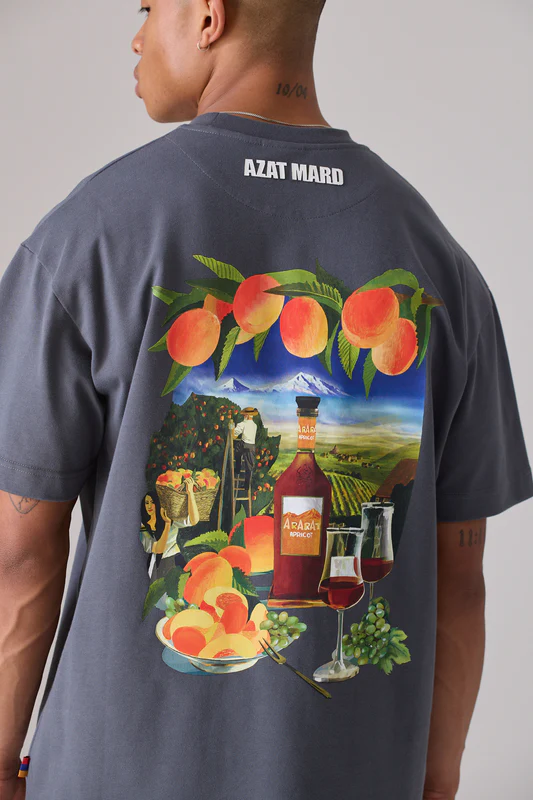
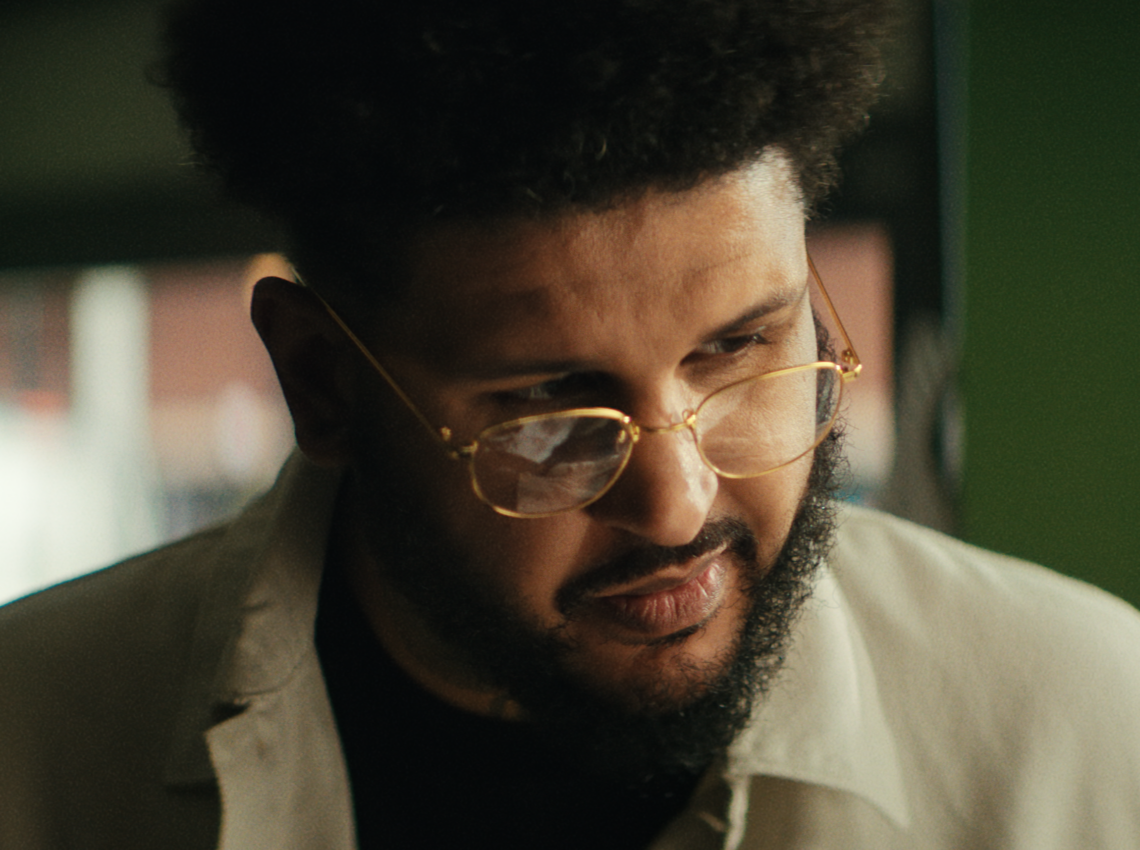


![Remel London’s [@Remel_London] “Mainstream” is a must attend for upcoming presenters!](https://guap.co/wp-content/uploads/2017/02/REMEL-LONDON-FLYER-FINAL-YELLOW-COMPLETE-1.png)